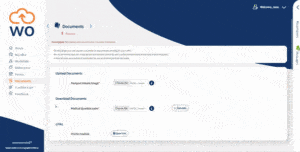The recent Webonboarding webinar provided some great insights on how to handle the HR challenges of a rapidly growing business.
During the online session, Melanie Guy, Head of HR at Webexpenses, shared her experiences as part of an organisation in which the headcount has doubled in recent years, thanks to global expansion.
You can find the full webinar here
Here’s a quick overview of some of the most important points that emerged during the discussion with Webonboarding’s Simon Connell:
Doubling and doubling
Doubling an organisation’s headcount doesn’t mean that HR workload will double – it can be more than that. This is because when a company grows, it’s also liable to become more complex in its organisational structure.
In the case of Webexpenses, the company was growing into a global operation with new offices bringing all the additional HR challenges of different national legislations and employment regulations.
A common onboarding growth problem is not having the administrative resources and flexibility that’s required to handle all of these kinds of additional demands.
Delivering an experience
As a company grows, it’s vital that a scalable and reliable onboarding process is in place to deliver an engaging and positive starter experience. As the demands on HR increase, it can often create a long and frustrating onboarding process for new hires.
After the excitement of the interview and job offer, they find themselves entering a lull with minimal information or interaction from their prospective employer. It’s during this phase that the risks of candidates dropping out is at its highest.
An effective onboarding process needs to be scalable so that a reliable and consistent experience can be maintained for new hires while the organisation continues to grow.
There’s never enough time
As a company headcount increases, HR teams are liable to start feeling overwhelmed by an ever growing task list. It’s estimated that it takes 50 minutes to create and check all of the paperwork that needs to be sent out to a new starter.
This doesn’t include the additional time that’s required to chase up, check and input the information that’s received back from a candidate. Without an efficient hiring process, onboarding within a growing company can quickly start to become unmanageable.
Time is money
It may be a cliche but when it comes to HR management – time really is money. And onboarding is one area where there are misconceptions about the actual HR time it takes to complete the process.
Research within Melanie Guy’s company found that when you account for all of the HR tasks and processes involved in a traditional paper-based onboarding process -, checking, sending out and inputting info – the cost per hire is £195.
This cost is in addition to the known recruitment costs, such as advertising and agency fees. When this is multiplied by the number of hires a company is processing each year, it highlights the importance of effective onboarding for a growing organisation.
You are valuable
Research shows that 69 percent of HR teams currently struggle to issue contracts quickly and almost a quarter (24 percent) of their time is devoted to carrying out onboarding related tasks.
Typically, onboarding is still managed via paperwork being posted out to candidates and information having to be input manually by HR. So the benefits of an efficient process go beyond time saving.
By minimising the need for menial admin tasks, it allows a HR team to refocus on more productive tasks that help to monitor and maintain efficient processes within a growing organisation.




